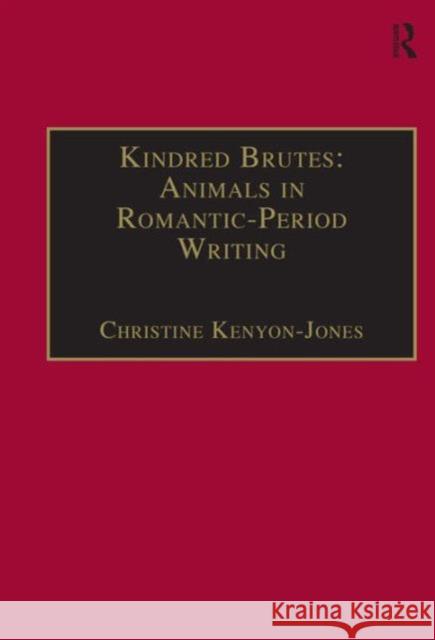Kindred Brutes: Animals in Romantic-Period Writing: Animals in Romantic-Period Writing » książka
Kindred Brutes: Animals in Romantic-Period Writing: Animals in Romantic-Period Writing
ISBN-13: 9780754603320 / Angielski / Twarda / 2001 / 240 str.
Kindred Brutes: Animals in Romantic-Period Writing: Animals in Romantic-Period Writing
ISBN-13: 9780754603320 / Angielski / Twarda / 2001 / 240 str.
(netto: 673,60 VAT: 5%)
Najniższa cena z 30 dni: 654,86
ok. 22 dni roboczych
Bez gwarancji dostawy przed świętami
Darmowa dostawa!
Exploring the significance of animals in Romantic-period writing, this new study shows how in this period they were seen as both newly different from humankind (subjects in their own right, rather than simply humanity's tools or adjuncts) and also as newly similar, with the ability to feel and perhaps to think like human beings. Approaches to animals are reviewed in a wide range of the period's literary work (in particular, that of Byron, Wordsworth, Coleridge, Keats, Southey, Clare and Blake). Poetry and other literary work are discussed in relation to discourses about animals in various contemporary cultural contexts, including children's books, parliamentary debates, vegetarian theses, encyclopaedias and early theories about evolution. The study introduces animals to the discussions about ecocriticism and environmentalism in Romantic-period writing by complicating the concept of 'Nature', and it also contributes to the debates about politics and the body in this period. It demonstrates the rich variety of thinking about animals in the late-eighteenth and early-nineteenth centuries, and it challenges the exclusion of literary writing from some recent multi-disciplinary debates about animals, by exploring the literary roots of many metaphors about and attitudes to animals in our current thinking. Kindred Brutes constitutes a genuinely original and substantial contribution both to Romantic-period writing and to general debates about animals and the body.











